If Brexit has achieved one thing, it has highlighted the weaknesses in Ireland’s potato production industry.
The Republic of Ireland (ROI) imports around 6,000t of seed potatoes every year.
Around 95% of imported seed originates from the UK, the majority of which comes from Scotland.
As Britain is out of the customs union and single market and is now a third country, EU plant health rules in the area of intra-union trade in plants and plant products no longer apply.
This means that British seed potatoes are now banned from entering the EU. This import ban also extends to Northern Ireland (NI).
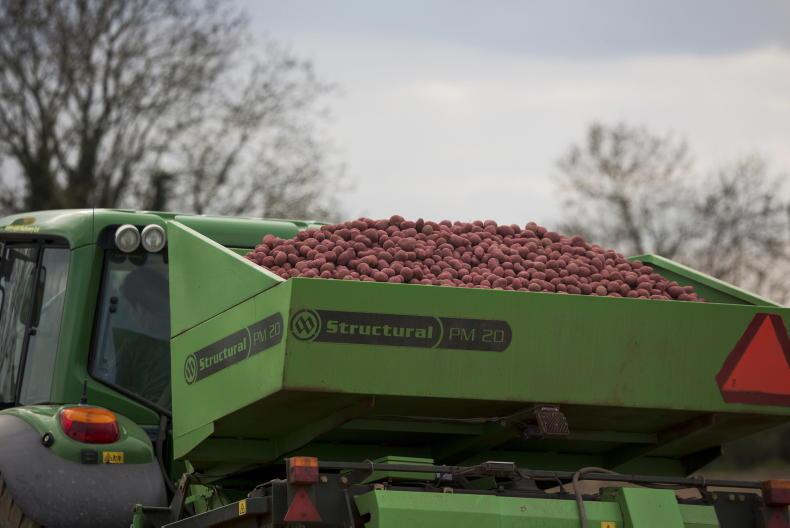
Growers now have to plan for their 2022 seed requirements.
Under the terms of the Northern Ireland Protocol, which prevents a hard border with ROI, this means that the island of Ireland is deemed a single epidemiological unit (SEU).
Therefore, NI falls under the same sanitary and phytosanitary regulations as the EU. As a result, seed can be exported from NI to the EU.
Why were seed potatoes banned?
Discussions have been ongoing between the UK and the European Commission in a bid to gain third country equivalence for plant reproductive materials, drop plant health prohibitions and make changes to the Northern Ireland Protocol.
Currently, as it stands, the UK has not been granted full third country equivalence, but a number of plant health prohibitions have been lifted.
At the end of 2020, the EU plants, animals, feed and food (PAFF) committee voted to lift the ban on ware potatoes for export to the EU and NI.
This allowed the export of ware potatoes from the UK to the EU and from Britain to NI from 1 January 2021.
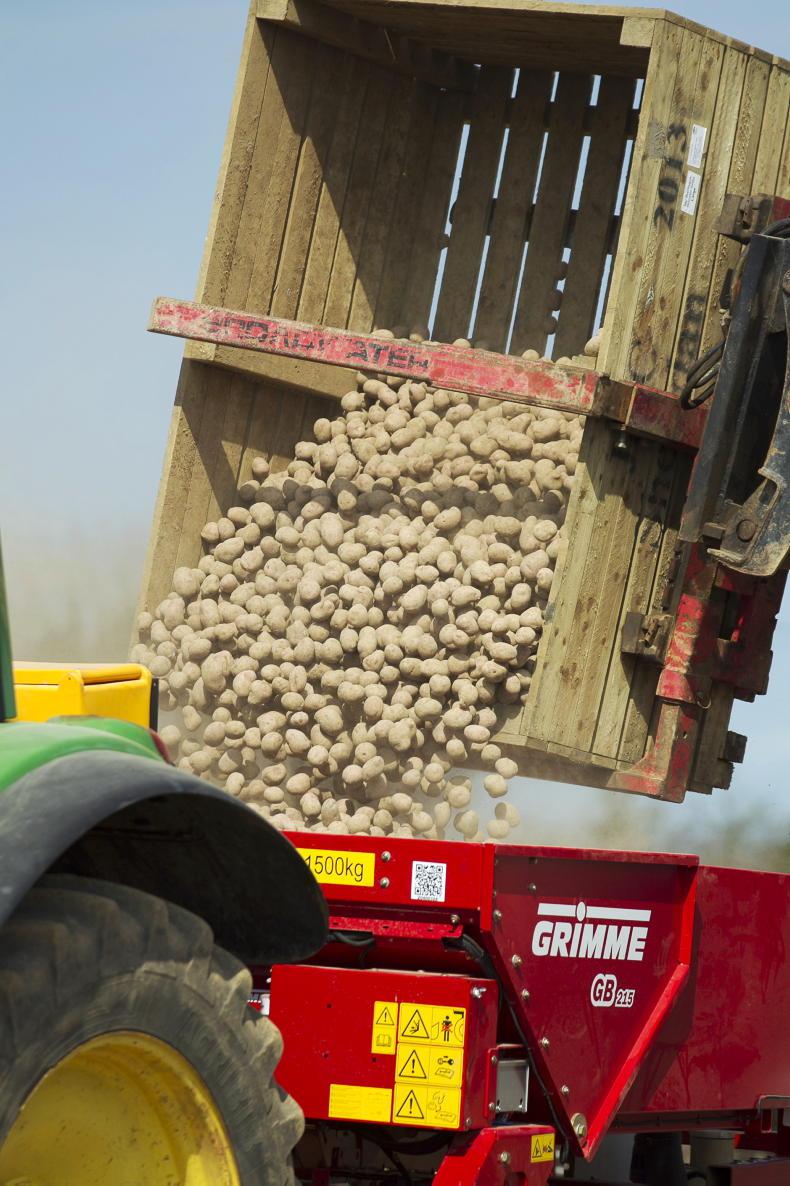
Seed potatoes can be exported from NI to the EU.
However, seed potatoes fall under a different category than ware potatoes, as they are regarded as carrying a higher level of disease risk.
The EU has again confirmed that they will not accept the case for a permanent change to the ban on British seed potatoes.
This is on the grounds that there is no agreement for Britain to be dynamically aligned with EU rules in the same way that Switzerland is.
It is understood that the UK government would not agree to this.
The UK already has a six-month derogation in place for EU seed imports
Discussions on third country equivalence remain open, but nothing is expected to happen until later in 2021.
A representation will be made to PAFF by the UK’s Department for Environment, Food and Rural Affairs at the end of January, in a bid to gain a six month derogation to allow for seed exports from Britain to the EU.
The UK already has a six-month derogation in place for EU seed imports.
Disruption
Potato growers here have known for some time there would be disruption to their 2021 seed potato supply and, as such, made every effort to import their seed requirements before the 31 December 2020 deadline.
Ireland was once a stronghold for seed potato production for both domestic use and export.
The country was well known for having a high plant health status, meaning that many of the pests and pathogens which were present elsewhere in Europe were absent in Ireland.
In 2000, over 2,000ha of seed potatoes were grown in ROI. This number has reduced to just 229ha in 2020, while around 404ha were grown in NI.
As our domestic seed production decreased, our imports increased.
Table 1 shows the tonnages of imported seed to ROI over the past 10 years, the vast majority of which comes from Britain.
NI’s Department of Agriculture, Environment and Rural Affairs was asked to provide import figures, but these had not been provided by the time this article was going to print.
In the absence of third party equivalence, potato growers on the island of Ireland are likely to face substantial disruption when securing seed supplies for 2022.
The frustration among the seed potato industry in Scotland and England is palpable. British seed potato standards exceed those of many EU countries.
These standards won’t drop post-Brexit, explained David Murdie of Grampian Growers, a farmer-owned co-operative based in Montrose, Scotland, that produces seed potatoes for export to ROI and Germany.
“We have spent 10 years building up relationships with our customers and we won’t give up the business easily,” David explained.
[...] we’ll have massive varietal imbalance
Growers who supply the co-operative are now facing the difficult decision of whether or not to plant seed for the 2022 European market.
Seed potatoes seem to have got lost in the crossfire during negotiations, as other plant reproductive materials are included in the deal, says Archie Gibson, executive director of Agrico UK, a developer and supplier of seed potatoes based in Angus, Scotland.
There are around 25,000t of seed potatoes exported from the EU to the UK and around 25,000t exported from the UK to the EU, explains David.
“Bear in mind, these are different varieties being traded, so if no agreement is reached, we’ll have massive varietal imbalance, which will ultimately impact small rural businesses and farmers.”
In anticipation of the seed supply disruptions, many growers heeded the warnings and kept home saved seed or ensured their British seed orders were delivered before the end of the transition period.
“We grow varieties like Maris Piper, Marquees and Arcade, 80% of which are imported,” explains Eddie Doyle, who farms in Mooncoin, Co Kilkenny.
He now has his 2021 seed supply secured and thinks there is scope to increase native seed production.
“There needs to be cooperation between seed companies and the Department of Agriculture to establish a growers’ base,” he says.
Opportunities
Richard Orr, who farms in Downpatrick, Co Down, also believes there are opportunities for growers in Ireland to grow and sell seed potatoes for home markets: “Brexit is as much an opportunity as it is a hassle for seed production,” said Richard, who is the AHDB monitor farmer for NI.
However, he believes there needs to be an all-Ireland approach to plant health and potato seed production.
His 2021 seed supply is also secured but he plans to increase his volume of home-grown seed this year.
Years of the industry actively outsourcing seed potato production has created weaknesses in Ireland’s potato supply chains.
There is a definite scope for significant increase in native seed production across the island and, in time, perhaps this industry can be resurrected.
However, time is against us and unless an arrangement can be made between the UK and EU to allow, if only even on a temporary basis, seed imports, then Ireland’s growers are in for a challenging 2022 season.
Growers need to plan for this, as there is no guarantee that third country equivalence will be granted.
If Brexit has achieved one thing, it has highlighted the weaknesses in Ireland’s potato production industry.
The Republic of Ireland (ROI) imports around 6,000t of seed potatoes every year.
Around 95% of imported seed originates from the UK, the majority of which comes from Scotland.
As Britain is out of the customs union and single market and is now a third country, EU plant health rules in the area of intra-union trade in plants and plant products no longer apply.
This means that British seed potatoes are now banned from entering the EU. This import ban also extends to Northern Ireland (NI).

Growers now have to plan for their 2022 seed requirements.
Under the terms of the Northern Ireland Protocol, which prevents a hard border with ROI, this means that the island of Ireland is deemed a single epidemiological unit (SEU).
Therefore, NI falls under the same sanitary and phytosanitary regulations as the EU. As a result, seed can be exported from NI to the EU.
Why were seed potatoes banned?
Discussions have been ongoing between the UK and the European Commission in a bid to gain third country equivalence for plant reproductive materials, drop plant health prohibitions and make changes to the Northern Ireland Protocol.
Currently, as it stands, the UK has not been granted full third country equivalence, but a number of plant health prohibitions have been lifted.
At the end of 2020, the EU plants, animals, feed and food (PAFF) committee voted to lift the ban on ware potatoes for export to the EU and NI.
This allowed the export of ware potatoes from the UK to the EU and from Britain to NI from 1 January 2021.

Seed potatoes can be exported from NI to the EU.
However, seed potatoes fall under a different category than ware potatoes, as they are regarded as carrying a higher level of disease risk.
The EU has again confirmed that they will not accept the case for a permanent change to the ban on British seed potatoes.
This is on the grounds that there is no agreement for Britain to be dynamically aligned with EU rules in the same way that Switzerland is.
It is understood that the UK government would not agree to this.
The UK already has a six-month derogation in place for EU seed imports
Discussions on third country equivalence remain open, but nothing is expected to happen until later in 2021.
A representation will be made to PAFF by the UK’s Department for Environment, Food and Rural Affairs at the end of January, in a bid to gain a six month derogation to allow for seed exports from Britain to the EU.
The UK already has a six-month derogation in place for EU seed imports.
Disruption
Potato growers here have known for some time there would be disruption to their 2021 seed potato supply and, as such, made every effort to import their seed requirements before the 31 December 2020 deadline.
Ireland was once a stronghold for seed potato production for both domestic use and export.
The country was well known for having a high plant health status, meaning that many of the pests and pathogens which were present elsewhere in Europe were absent in Ireland.
In 2000, over 2,000ha of seed potatoes were grown in ROI. This number has reduced to just 229ha in 2020, while around 404ha were grown in NI.
As our domestic seed production decreased, our imports increased.
Table 1 shows the tonnages of imported seed to ROI over the past 10 years, the vast majority of which comes from Britain.
NI’s Department of Agriculture, Environment and Rural Affairs was asked to provide import figures, but these had not been provided by the time this article was going to print.
In the absence of third party equivalence, potato growers on the island of Ireland are likely to face substantial disruption when securing seed supplies for 2022.
The frustration among the seed potato industry in Scotland and England is palpable. British seed potato standards exceed those of many EU countries.
These standards won’t drop post-Brexit, explained David Murdie of Grampian Growers, a farmer-owned co-operative based in Montrose, Scotland, that produces seed potatoes for export to ROI and Germany.
“We have spent 10 years building up relationships with our customers and we won’t give up the business easily,” David explained.
[...] we’ll have massive varietal imbalance
Growers who supply the co-operative are now facing the difficult decision of whether or not to plant seed for the 2022 European market.
Seed potatoes seem to have got lost in the crossfire during negotiations, as other plant reproductive materials are included in the deal, says Archie Gibson, executive director of Agrico UK, a developer and supplier of seed potatoes based in Angus, Scotland.
There are around 25,000t of seed potatoes exported from the EU to the UK and around 25,000t exported from the UK to the EU, explains David.
“Bear in mind, these are different varieties being traded, so if no agreement is reached, we’ll have massive varietal imbalance, which will ultimately impact small rural businesses and farmers.”
In anticipation of the seed supply disruptions, many growers heeded the warnings and kept home saved seed or ensured their British seed orders were delivered before the end of the transition period.
“We grow varieties like Maris Piper, Marquees and Arcade, 80% of which are imported,” explains Eddie Doyle, who farms in Mooncoin, Co Kilkenny.
He now has his 2021 seed supply secured and thinks there is scope to increase native seed production.
“There needs to be cooperation between seed companies and the Department of Agriculture to establish a growers’ base,” he says.
Opportunities
Richard Orr, who farms in Downpatrick, Co Down, also believes there are opportunities for growers in Ireland to grow and sell seed potatoes for home markets: “Brexit is as much an opportunity as it is a hassle for seed production,” said Richard, who is the AHDB monitor farmer for NI.
However, he believes there needs to be an all-Ireland approach to plant health and potato seed production.
His 2021 seed supply is also secured but he plans to increase his volume of home-grown seed this year.
Years of the industry actively outsourcing seed potato production has created weaknesses in Ireland’s potato supply chains.
There is a definite scope for significant increase in native seed production across the island and, in time, perhaps this industry can be resurrected.
However, time is against us and unless an arrangement can be made between the UK and EU to allow, if only even on a temporary basis, seed imports, then Ireland’s growers are in for a challenging 2022 season.
Growers need to plan for this, as there is no guarantee that third country equivalence will be granted.






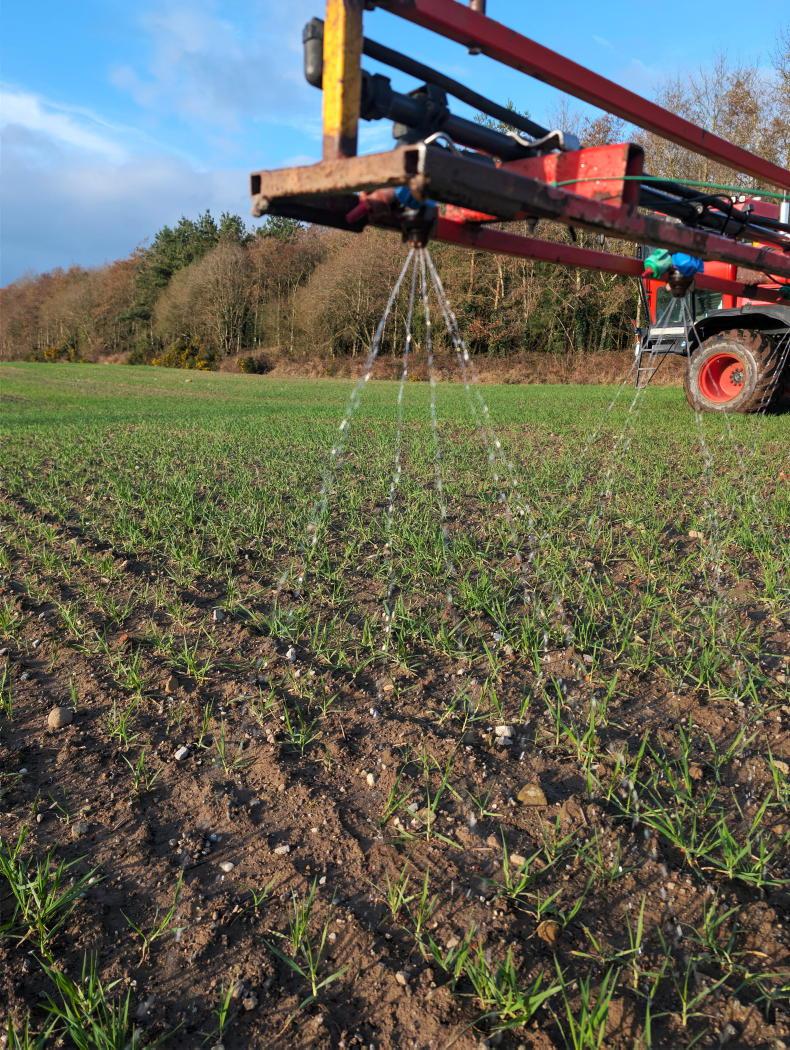
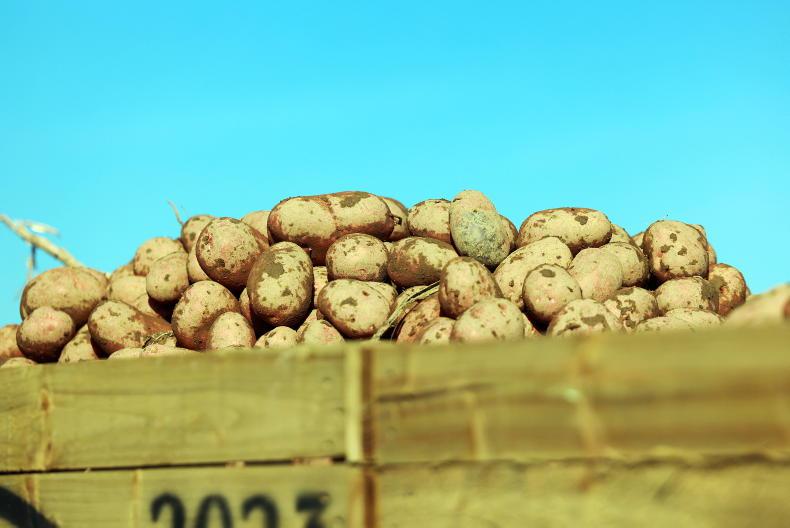
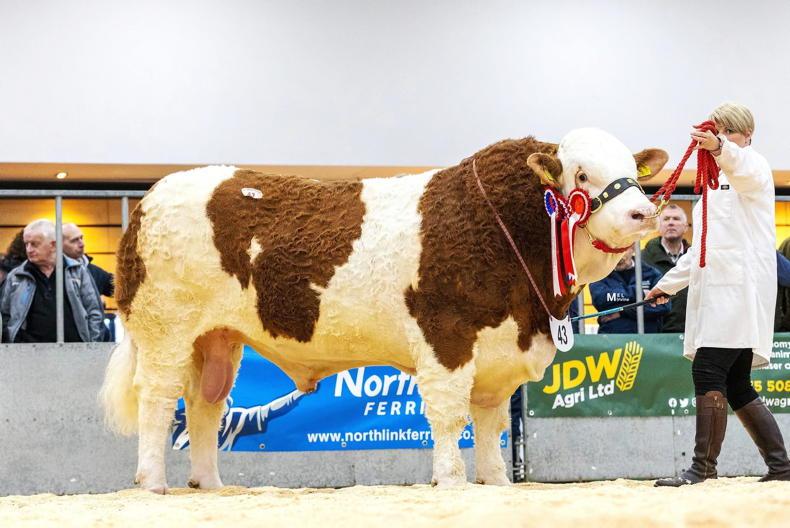
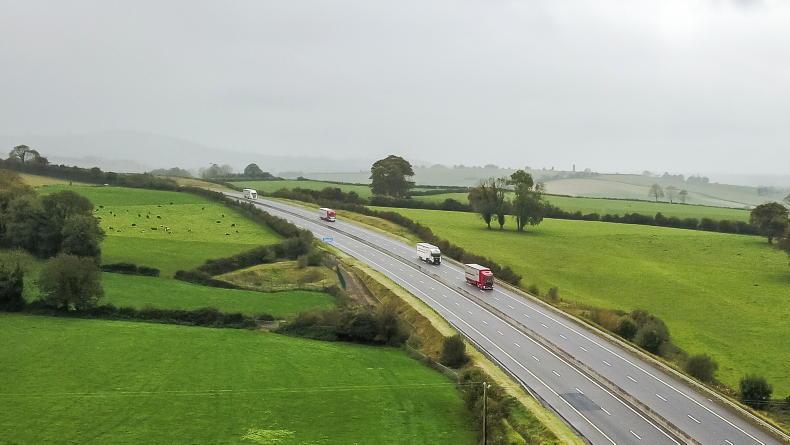
SHARING OPTIONS